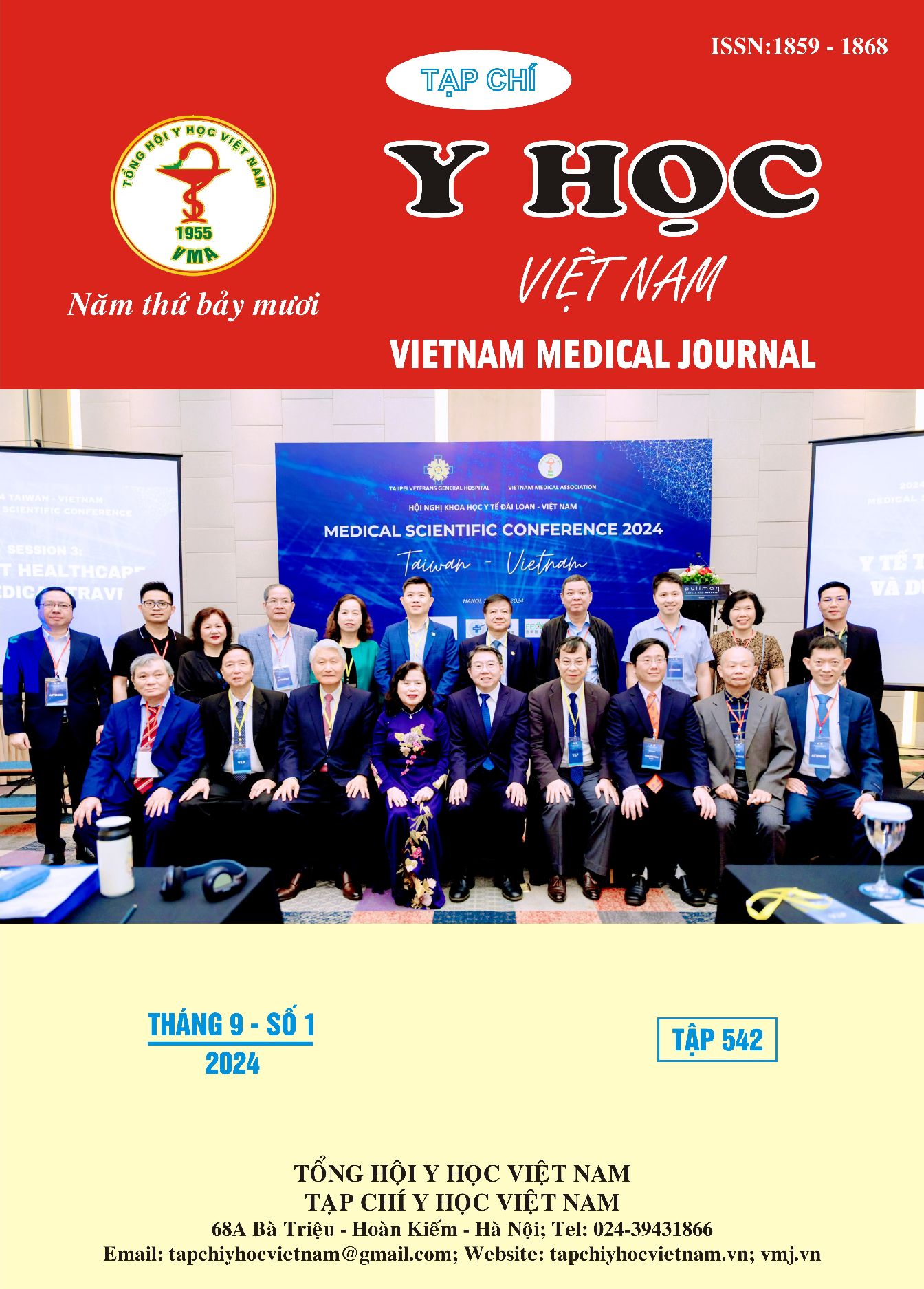INITIAL EVALUATION OF THE EFFECTIVENESS OF HOLTER 7-DAY ECG IN PATIENTS WITH CHRONIC HEART FAILUR
Main Article Content
Abstract
Background: Arrhythmias are a common problem in patients with chronic heart failure (include reduced ejection fraction, mildly reduced ejection fraction, and preserved ejection fraction. Cardiac arrhythmias can lead to increased cardiovascular events and hospitalizations in in patients with chronic heart failure, most commonly atrial fibrillation and ventricular tachyarrhythmias. Holter electrocardiography is a tool that has been proven effective in diagnosing and monitoring arrhythmias in patients with chronic heart failure, especially the 7-day Holter electrocardiogram. Although it has been proven in many studies around the world but in Vietnam there is still very little data on the effectiveness of 7-day ECG Holter in patients with chronic heart failure. Objective: To investigate the characteristics of arrhythmias and related factors based on a 7-day Holter ECG in patients with chronic heart failure. Methods: From December 2022 to February 2023, at the Cardiology Clinic, Thong Nhat Hospital, Ho Chi Minh City, this cross-sectional study collected data from patients diagnosed with chronic heart failure based on echocardiography and NT-proBNP, who were indicated to wear a 7-day Holter ECG to evaluate arrhythmias. Factors related to the condition were determined using logistic regression. Results: Among the 35 surveyed patients, the average age in the study was 65.1 ± 17.9 years, and the average ejection fraction was 40.3 ± 14.5%. There were 2 cases of paroxysmal atrial fibrillation and 3 cases of ventricular tachycardia that were not recorded on a 24-hour Holter ECG but were detected on a 7-day Holter ECG. Conclusion: In patients with chronic heart failure, the use of a 7-day Holter ECG helps detect arrhythmias that may be missed by a 24-hour Holter ECG.
Article Details
Keywords
Suy tim mạn, holter điện tâm đồ 7 ngày, rối loạn nhịp tim
References
2. Kim JY, Oh IY, Lee H, et al. The efficacy of detecting arrhythmia is higher with 7-day continuous electrocardiographic patch monitoring than with 24-h Holter monitoring. Journal of arrhythmia. Jun 2023;39(3):422-429. doi:10.1002/ joa3.12865
3. McMurray JJ, Packer M, Desai AS, et al. Angiotensin–neprilysin inhibition versus enalapril in heart failure. 2014;371(11):993-1004.
4. Bazan V, Cediel G, Llibre C, et al. Contemporary Yield of 24-hour Holter Monitoring: Role of Inter-Atrial Block Recognition. Journal of atrial fibrillation. Aug-Sep 2019;12(2):2225. doi:10.4022/jafib.2225
5. McDonagh TA, Metra M, Adamo M, et al. 2021 ESC Guidelines for the diagnosis and treatment of acute and chronic heart failure: Developed by the Task Force for the diagnosis and treatment of acute and chronic heart failure of the European Society of Cardiology (ESC). With the special contribution of the Heart Failure Association (HFA) of the ESC. European journal of heart failure. Jan 2022;24(1):4-131. doi:10.1002/ ejhf.2333
6. Chua SK, Chen LC, Lien LM, et al. Comparison of Arrhythmia Detection by 24-Hour Holter and 14-Day Continuous Electrocardiography Patch Monitoring. Acta Cardiologica Sinica. May 2020;36(3): 251-259. doi:10.6515/acs.202005_ 36(3).20190903a


